Artificial Intelligence Takes on Virginia Code & General Assembly
LegislativeAssistant.AI offers a suite of tools - currently free, all under development - focusing on the Virginia legislature and Virginia law.
I’m a bit surprised it’s taken this long. Virginia is, after all, the data center capital of the world, and the current (and expected) proliferation of artificial intelligence drives data center expansion.
But with LegislativeAssistant.AI, we now have a suite of tools that use AI models to “help you navigate the law, public records, and government data faster than ever before.” I asked Max Shapiro, the developer of LegislativeAssistant.AI and Legislative Assistant to Del. Jackie Glass (D-Norfolk), for some background and thoughts on this new suite of tools.
Here’s Shapiro:
I started building LegislativeAssistant.AI as a way to answer public policy questions in a reliable and auditable way using AI models. People think tools like ChatGPT are plagiarism machines that often hallucinate answers and sources. They aren't wrong, but what's important to understand is that they are capable of reliably giving accurate answers when provided with the proper context and instructions.
If you ask ChatGPT a question about the Virginia Freedom of Information Act, unless you let the model browse the internet, it's likely to get the question wrong. That's because it's relying on its own internal memories of the law, which are imperfect. But if you provide ChatGPT with the entire text of the act and a precisely worded question, it will provide you an answer that is very likely to be correct. The catch comes in when you need to include other sources of information to get a truly correct answer. Maybe you need to consider a specific court case or advisory opinion. The more context you give these models, the better their answers become.
The tools I'm building formalize and automate this process so that the AI model can easily access the information they need to provide correct answers, and they can do it in an auditable environment.
Virginia State Code Analyst
Shapiro then discussed one of the two available (and free, for now) LegislativeAssistant.AI tools.
Shapiro again:
To demonstrate this, our simplest tool is called the Virginia State Code Analyst. It has the ability to browse a database table containing the state code exactly like a human would. When you ask it a question, it will typically first pull up a list of all the titles in the state code. Then it will pick the title it thinks is most likely to contain an answer and pull up a list of all the chapters in that title. Then it will pick one or more chapters and pull up the lists of sections in those chapters. Then it will begin reading the full text of the sections it believes are most likely to contain the answer. Throughout this entire process, the user interface shows you a cleaned-up version of what the model is reading so that you can decide for yourself whether or not it is coming to the right conclusions or even looking in the right part of the code.
I played around with the beta version of the Virginia State Code Analyst tool, which is currently under development, and asked the chatbot some simple questions about the Virginia Freedom of Information Act.
Not bad at all.
The system seems to also recognize its limitations, for instance:
Virginia Legislative Analyst
The second available (again, free for now) tool is the alpha version of the Virginia Legislative Analyst which “is designed to answer questions about Virginia Legislation from 2020 to 2025.” You can tell this is an alpha version, as the chatbot definitely has trouble with 2020-2025 history. For example:
The system responded the same way when asked about former Del. Lee Carter (D-Manassas) and former State Sen. Chap Petersen (D-Fairfax). It also had trouble finding FOIA-related legislation from any recent session.
And although it was probably unfair for me to ask an alpha version to do comparative work, I had to ask about the Fairfax casino legislation:
The system was, however, able to generate a list of bills sponsored by State Sen. Russet Perry (D-Loudoun) that were killed in committee during the 2025 session, to the credit of the alpha version.
The Future of LegislativeAssistant.AI
As I discovered first hand, and as Shapiro notes:
These tools are still very much in their development stage and should be used with caution, but they hold the potential to dramatically increase the amount of intelligence applied to public policy issues. When working properly, they drastically cut down on the amount of time it takes to thoroughly research and understand complex issues.
I can see the benefits of these tools, presuming they’ve been fine tuned, for research purposes. Or, which is more likely in my own case, for the purpose of satisfying momentary bouts of curiosity in a more efficient way.
Although LegislativeAssistant.AI only offers the Virginia State Code Analyst and Virginia Legislative Analyst tools right now, the Virginia Elections Analyst tool is advertised on the website as “under active development.”
Finally, here’s Shapiro with the last word:
Over the course of the next few months, I will be steadily releasing new tools and more advanced user interfaces covering everything from General Assembly legislation and committee meeting transcripts to local government meetings and election results. Some of this will be made available free, others I will be charging for, but in either case, these tools are easily reproducible by anyone with the right motivation and patience. All of this data is publicly accessible, it's just a question of putting the pieces together in the right order.
This content is not sponsored, and I have no financial relationship with Max Shapiro, his employer, LegislativeAssistant.AI, or any associated entities.

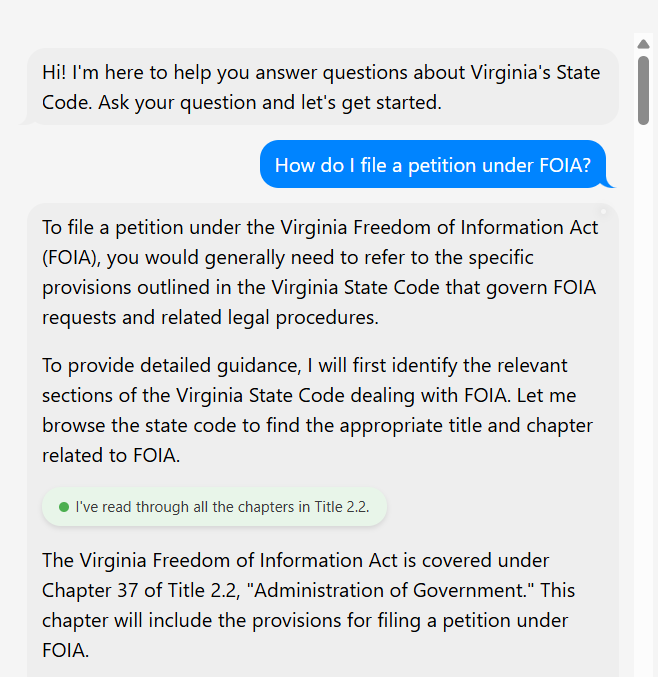
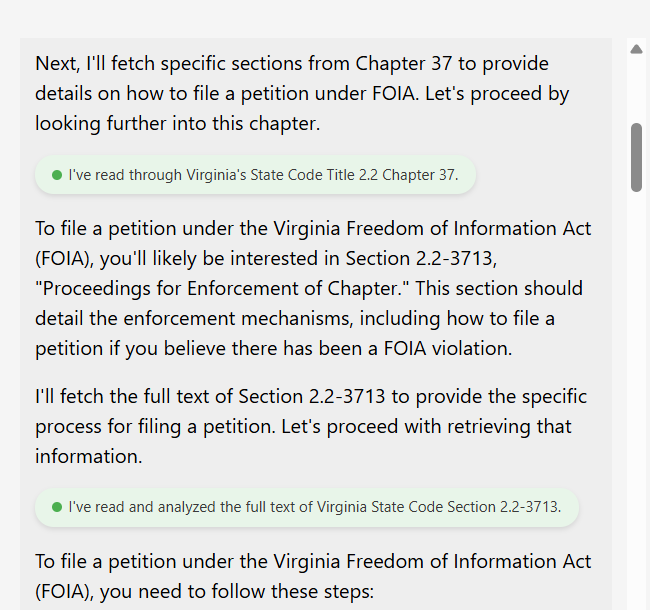
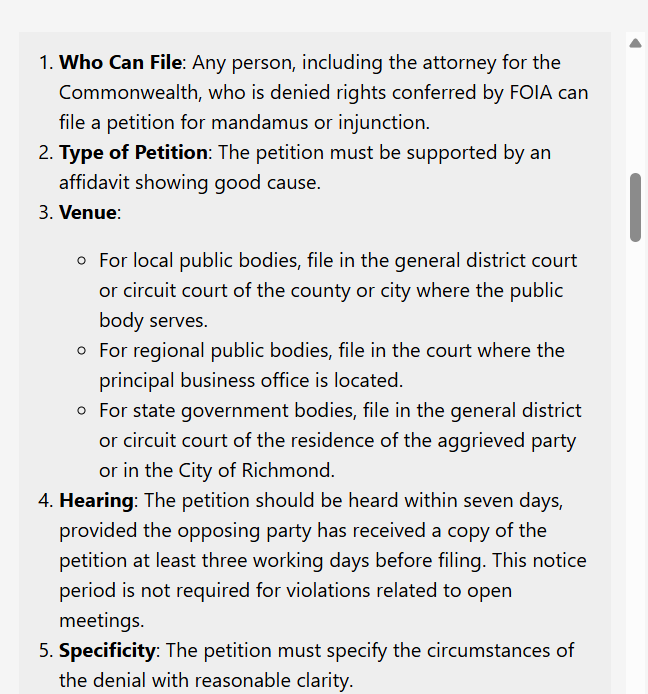
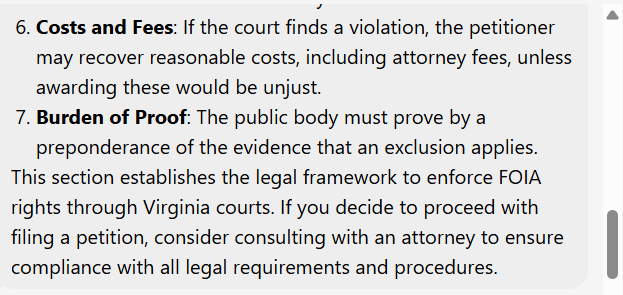
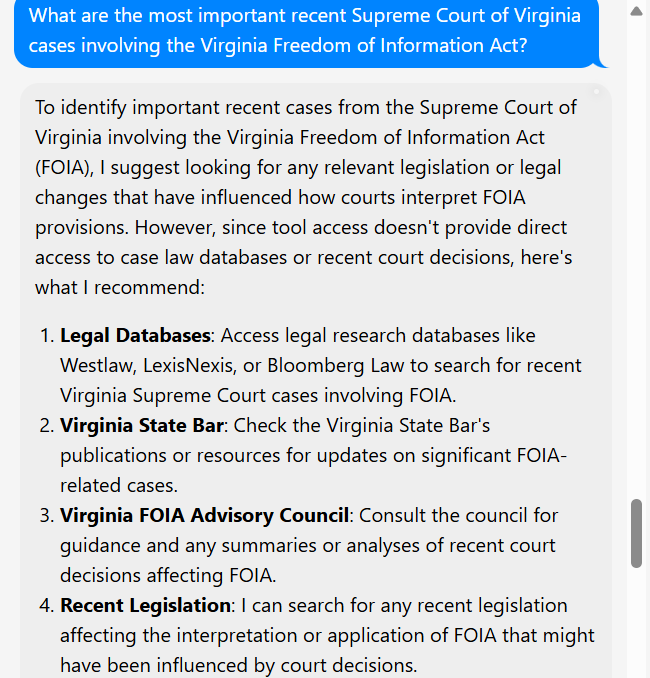
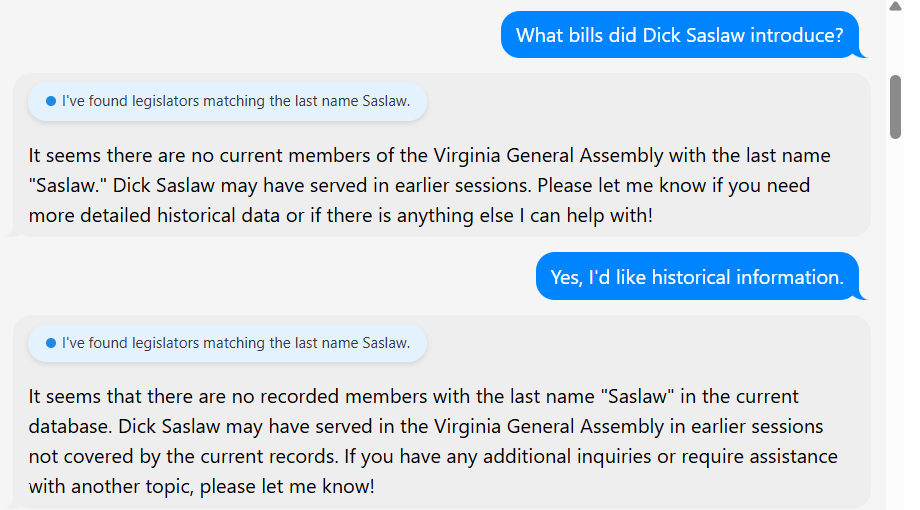
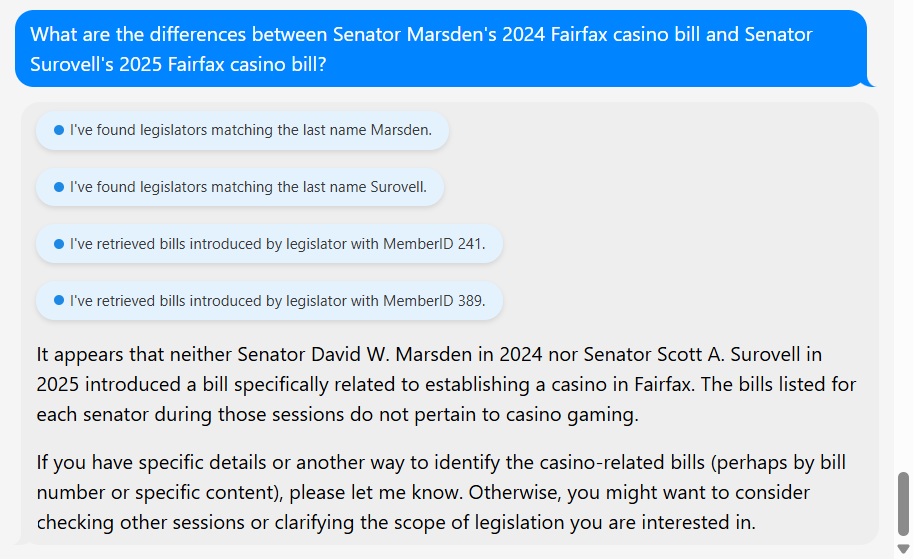
I've been using a Google AI tool called NotebookLM to sort through budgets and other planning docs. The tool lets you load in multiple sources. Directing its focus and being specific with questions are definitely good tips. The tool has been a time saver with things like finding and compiling, reformat data and even putting it into spreadsheets. But in terms of analysis and comparison, it still needs a lot of fact checking.